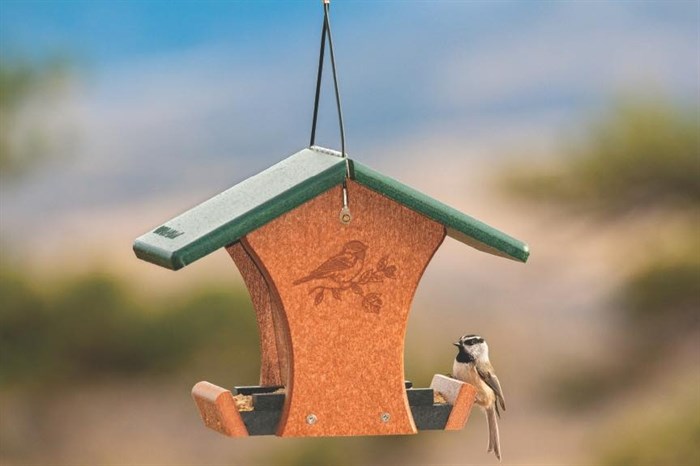
Image Credit: SUBMITTED
May 11, 2022 - 7:30 AM
Bird lovers from Kamloops and the Okanagan agree that it's important to trust the experts and follow the science in order to flatten the curve of an active avian flu outbreak.
But there are two schools of thought on whether it's OK to feed songbirds while the bird flu is going around.
As long as feeders are kept clean and changed regularly, keeping them up won't worsen the outbreak, says the owner of a bird feed store Kamloops.
Kurtis Huston, owner of Wild Birds Unlimited in Kamloops, pointed out how Birds Canada and Environment Canada both tell the public that the use of feeders is still safe for birds during the outbreak.
"The use of bird feeders is still safe but they should be removed from areas that are open to poultry and other domestic animals," reads Environment Canada's website.
Huston wants the public to take extra precautions during the outbreak, but not beyond what Environment Canada recommends.
READ MORE: ‘The early bird gets the worm,’ look for these birds around the Thompson Okanagan
While birds are more likely to congregate in areas with free food, he doesn’t believe it will be beneficial to remove those sources of energy, so long as poultry or other domestic birds aren’t nearby.
“Birds are still going to congregate naturally – when you take down their feeding stations, there could be potentially unintended consequences of doing so,” he said.
Over the past week, Huston said many of his customers came in confused by recommendations recently made by the B.C. SPCA and the Okanagan Similkameen Stewardship, which have both asked the public to take their feeders down temporarily.
“Due to the outbreak of avian flu, some bird experts are recommending that folks stop filling their bird feeders for a little while, as bird feeders promote extra congregation of wild songbirds and can increase transmission of disease,” the OSS's Facebook post reads.
Lia McKinnon, a biologist with OSS, sees how feeders would increase the transmission of the bird flu, as it can spread through bird poo.
"While the birds perch at the feeders they drop seed on the ground, they also often defecate before flying off feeders," she said in an email. "Birds then forage for dropped seeds under the feeders and are very likely to come into contact with the droppings of other birds."
The federal government, by recommending homeowners take their feeders down if they have poultry on their property, is acknowledging that birdfeeders do present a level of risk, McKinnon said.
"Different experts have different opinions because we don't have a very clear way to measure," she said.
"We think that given the amount of food available to birds in the wild right now, people should probably err on the side of caution and take feeders down until the fall."
Andrea Wallace, B.C. SPCA's manager of wild animal welfare, said in an email that a precautionary approach is being taken "Given how quickly the disease has been spreading throughout the US and across Canada."
READ MORE: B.C. SPCA warns of dangers to birds with backyard feeders
Environment Canada says don't handle wild birds or feed them by hand in order to minimize transition of the flu.
Huston reminds the public that cleaning the equipment is part of being a responsible bird feeder, especially during this outbreak.
“One good thing about this is that it’s highlighting the importance of responsible bird feeding and keeping feeders clean,” he said.
In the Thompson and Okanagan, there have been three detections of the avian flu in the past week – one non-poultry detection of avian flu in the North Okanagan, and in the Central Okanagan there was one poultry and one non-poultry detection, according to the Canadian Food and Inspection Agency. On April 25 there was a non-poultry detection in the City of Kelowna.
Environment Canada advises on its site that no humans have contracted the avian flu as a result of exposure to wild birds in North America.
To contact a reporter for this story, email Dan Walton or call 250-488-3065 or email the editor. You can also submit photos, videos or news tips to the newsroom and be entered to win a monthly prize draw.
We welcome your comments and opinions on our stories but play nice. We won't censor or delete comments unless they contain off-topic statements or links, unnecessary vulgarity, false facts, spam or obviously fake profiles. If you have any concerns about what you see in comments, email the editor in the link above.
News from © iNFOnews, 2022